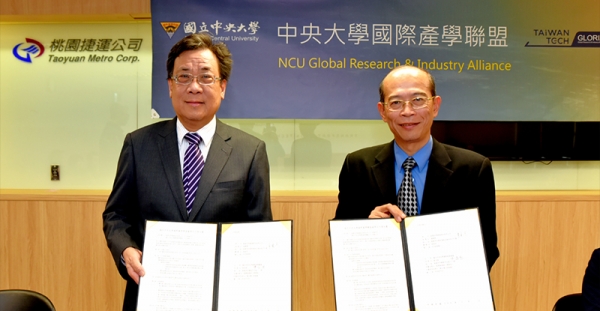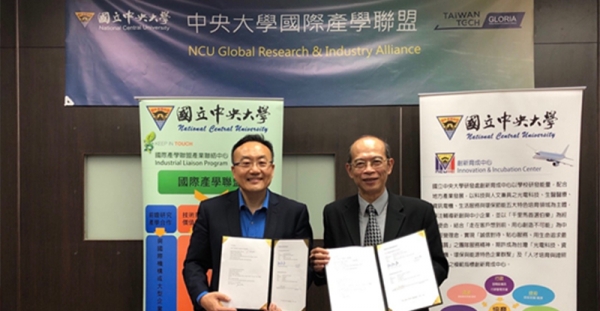NCU GLORIA and Gyals collaborate on fighting yeast infection
In upholding the core value of making connections on the international platform, NCU GLORIA has spared no effort to promote academia-industry collaborations in the area of biomedicine, as well as other fields of expertise. This March, Gyals group from Mongolia was invited to attend the 5th Microbiome R&D and Business Collaboration Congress and 4th Probiotics Congress: Asia, and officially signed up to become an international member of NCU GLORIA on March 8th. The membership agreement was signed by Dr. Naranbat Nyamdavaa, CEO of Gyals LCC, and Jen-Inn Chyi, Principal Investigator of NCU GLORIA.
“Gyals (Гялс)” in Mongolian means quick, or immediate. In 1997, Gyals group first established Gyals diagnostic laboratory in Ulaanbaatar, the capital of Mongolia. The Gyals medical center was extensively set up in 2006, and later became the first-ever medical center in Mongolia with its own clinical pathology laboratory, molecular biology laboratory, and microbiology laboratory in 2009. Gyals group approached Eric Huang, professor of National Central University’s Department of Biomedical Sciences and Engineering, to cooperate in developing probiotics effective in fighting vaginal yeast infection.
 Gyals group becomes NCU GLORIA’s international member. CEO of Gyals, Dr. Naranbat Nyamdavaa, (left), and the Principal Investigator of NCU GLORIA, Jen-Inn Chyi (right), shake hands on their upcoming collaboration.
Gyals group becomes NCU GLORIA’s international member. CEO of Gyals, Dr. Naranbat Nyamdavaa, (left), and the Principal Investigator of NCU GLORIA, Jen-Inn Chyi (right), shake hands on their upcoming collaboration.
 Group photo taken after the signing ceremony.
Group photo taken after the signing ceremony.
Candida albicans is the most common type of bacteria that causes yeast infection, which occurs often in female vaginas, and sometimes affects the mouths of newborns. Yeast infections are very common in gynecologic diagnosis, with symptoms including itching and burning sensation of the vagina, irregular vaginal discharge, and even vaginal pain in some cases. A normal vaginal pH is between 3.8 and 4.2 – this pH level helps maintain a natural barrier that inhibits pathogens while preventing infections. On the other hand, infections take place when physical fatigue and inadequate rest lead to declined immunity, which activates basophilic bacteria in the human body.
Gyals and Professor Huang will collaborate on developing probiotics, in fighting against Candida albicans. The female vagina relies on probiotics in order to maintain women’s vaginal, hence overall health. Scientific research has shown that while yeast infection is caused by an imbalance of microorganisms in the body, a way of resolving it is by adjusting the number of probiotics in the genitourinary system. Probiotics have been proven to effectively control harmful microorganisms and help the body to naturally produce lactic acid (potent microbicide) and hydrogen peroxide (sterilization). In an article published by The Journal of Infectious Diseases in 2001, probiotics may inhibit up to 50% to 74% in pathogen growth (of vaginal yeast infection).
We have great expectations in the probiotics currently being work on by Gyals and Professor Huang, in fighting against Candida albicans. In the meantime, NCU GLORIA will continue to cultivate international relations as well as strengthening forthcoming development in various professional fields.







